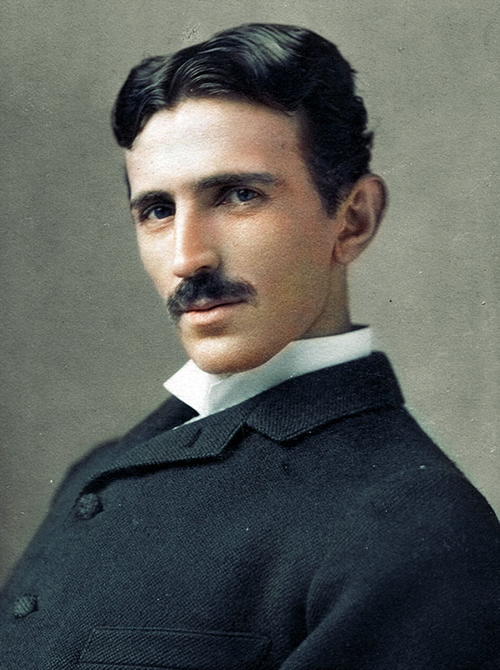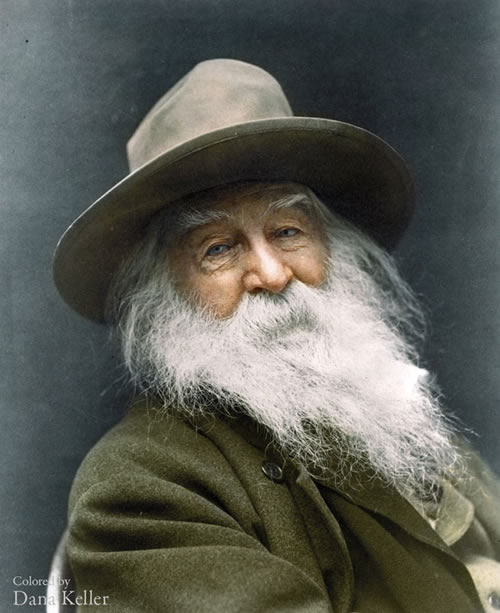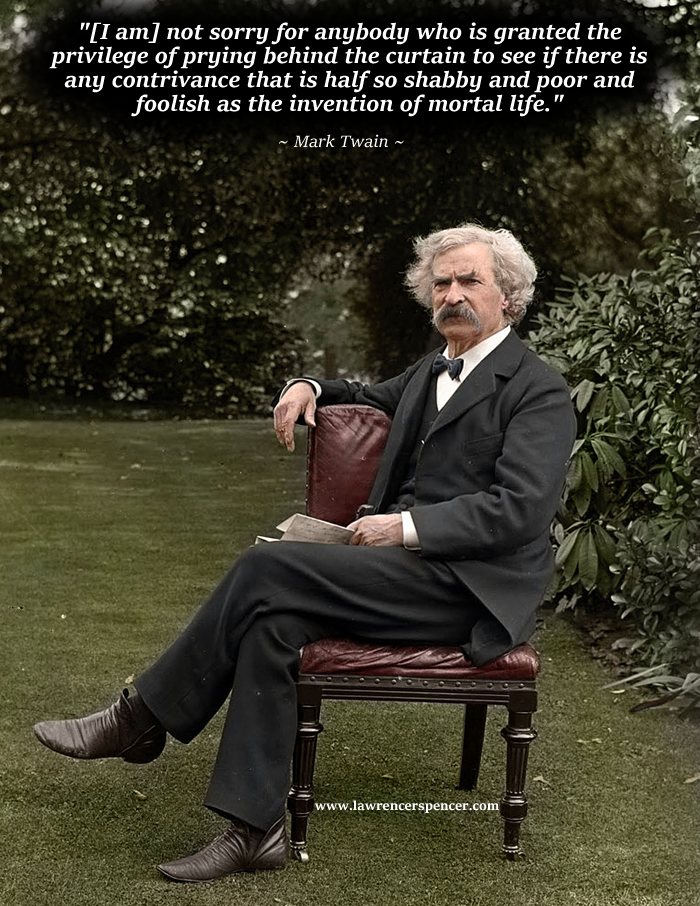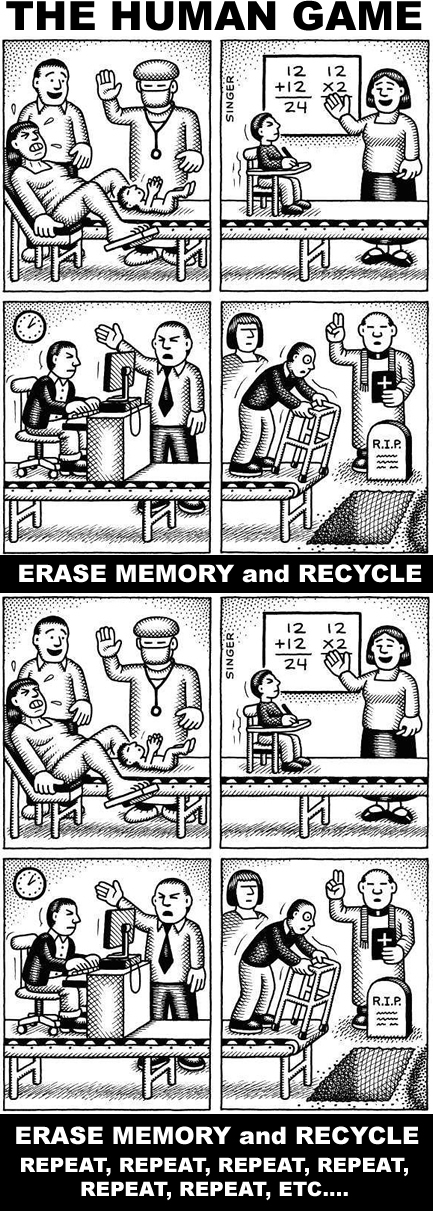Republished by Blog Post Promoter
Here are photographs of each man which have recently been “colorized” from the black and white original pictures, by the photographer Dana Keller. Her colorization brings these men “to life”, and reminds me that they are still alive through the poetic wisdom of Whitman, the world changing inventions of Tesla, and a wealth of words in the books of Twain.
These are three of the GREATEST men on modern civilization. Each of them were”sages”. (Definition: “SAGE” = The sage does not love or seek wisdom, because he already has wisdom. According to Plato, there are two categories of beings who do not do philosophy: 1) Gods and sages, because they are wise 2) senseless people, because they think they are wise.
These men lived, as we continue to do, in a Savage Society. We are “savage” in the sense that we worship or condone murder (war), greed, and violence toward each other and every life form on Earth. Warfare is nearly continuous during the entire history of humanity. Within 50 years, ONE HALF OF ALL SPECIES OF LIFE on Earth will have come extinct. In western society the wealthy, the monarchs, the corrupt politicians, the military, the criminal bankers, the strong athlete, the Super Hero, etc., are revered as though they were “gods”. They are conceived by the majority to be “the good guys” in our “civilized” society.
In contrast, the following three men (Walt Whitman, Nikola Tesla and Mark Twain) possessed the wisdom of a sage, the revolutionary genius of inventive imagination and ability, and gentle courage and personal integrity that are nearly beyond comprehension in the Age of Twitter and Monday Night Football.
THE GREATEST AMERICAN POET
Walter “Walt” Whitman (May 31, 1819 – March 26, 1892)
“This is what you shall do: Love the earth and sun and the animals, despise riches, give alms to every one that asks, stand up for the stupid and crazy, devote your income and labor to others, hate tyrants, argue not concerning God, have patience and indulgence toward the people, take off your hat to nothing known or unknown or to any man or number of men, go freely with powerful uneducated persons and with the young and with the mothers of families, read these leaves in the open air every season of every year of your life, re examine all you have been told at school or church or in any book, dismiss whatever insults your own soul, and your very flesh shall be a great poem and have the richest fluency not only in its words but in the silent lines of its lips and face and between the lashes of your eyes and in every motion and joint of your body. . . . The poet shall not spend his time in unneeded work. He shall know that the ground is always ready ploughed and manured . . . . others may not know it but he shall. He shall go directly to the creation. His trust shall master the trust of everything he touches . . . . and shall master all attachment.”

THE GREATEST INVENTOR IN THE HISTORY OF EARTH
Nikola Tesla (10 July 1856 – 7 January 1943)
“Like a wave in the physical world, in the infinite ocean of the medium which pervades all, so in the world of organisms, in life, an impulse started proceeds onward, at times, may be, with the speed of light, at times, again, so slowly that for ages and ages it seems to stay, passing through processes of a complexity inconceivable to men, but in all its forms, in all its stages, its energy ever and ever integrally present. A single ray of light from a distant star falling upon the eye of a tyrant in bygone times may have altered the course of his life, may have changed the destiny of nations, may have transformed the surface of the globe, so intricate, so inconceivably complex are the processes in Nature.”
THE GREATEST AMERICAN WRITER
Samuel Langhorne Clemens (November 30, 1835 – April 21, 1910), who was a personal friend of Nikola Tesla.
“We are strangely made. We think we are wonderful creatures. Part of the time we think that, at any rate. And during that interval we consider with pride our mental equipment, with its penetration, its power of analysis, its ability to reason out clear conclusions from confused facts, and all the lordly rest of it; and then comes a rational interval and disenchants us. Disenchants us and lays us bare to ourselves, and we see that intellectually we are no great things; that we seldom really know the things we think we know; that our best-built certainties are but sand-houses and subject to damage from any wind of doubt that blows.”
“Man seems to be a rickety poor sort of a thing, any way you take him; a kind of British Museum of infirmities and inferiorities. He is always undergoing repairs. A machine that was as unreliable as he is would have no market.”
“Man is the only animal that deals in that atrocity of atrocities, War. He is the only one that gathers his brethren about him and goes forth in cold blood and calm pulse to exterminate his kind. He is the only animal that for sordid wages will march out, as the Hessians did in our Revolution, and as the boyish Prince Napoleon did in the Zulu war, and help to slaughter strangers of his own species who have done him no harm and with whom he has no quarrel.”
“The Damned Human Race,” v: The Lowest Animal, by Mark Twain




